Bangladesh: ‘I’m graduating, other girls are being forced to marry’
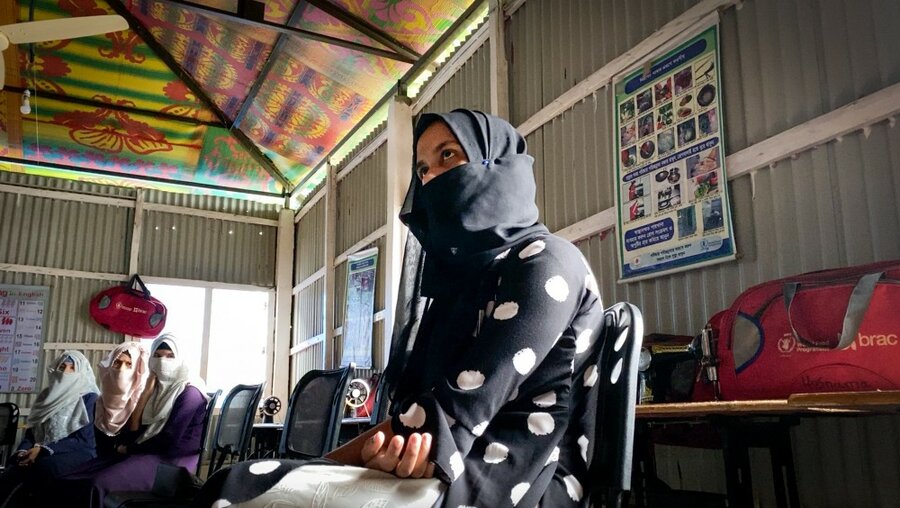
On 25 November, the UN’s UNiTE by 2030 to End Violence against Women campaign launches its ‘16 days of activism against gender-based violence’.
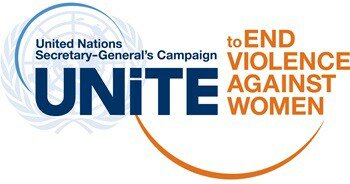
This year’s campaign draws attention to how the COVID-19 crisis has led to an alarming increase in multiple forms of violence against women and girls, especially physical, psychological, sexual and economic forms of domestic violence fuelled by household economic and food insecurity and confined living conditions due to lockdown and social isolation measures.
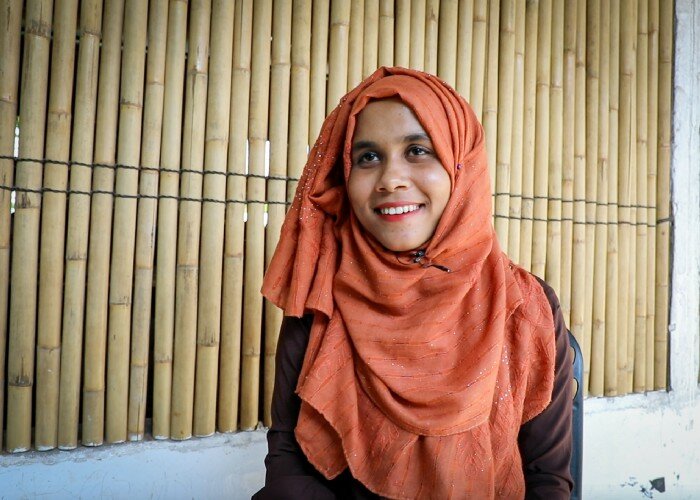
Lucky, 18, advocates for the rights of girls her age in the Rohingya community to study and delay marriage. Photo: WFP
From Lucky — a resident of Cox’s Bazar, Bangladesh, where WFP assists up to 900,000 people there with in-kind food assistance.
Like many people, the coronavirus pandemic changed my life. I’m not meeting my friends, I’m not going to university, and I’m studying online. But I’m working to spread awareness on the virus to keep my community safe.
From India in solidarity: Ending the ‘shadow pandemic’ of violence against women
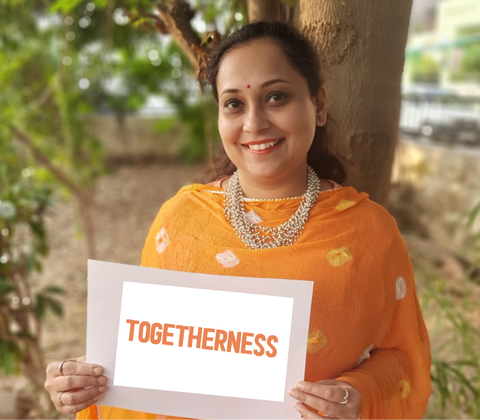
You could call me Lucky. I am really lucky! My life has been full of opportunities that most girls around me don’t get.
At 18, I see girls my age and younger being married off instead of getting to go school or work. While my parents have stood by my right to get an education, families around us are increasingly pushing their daughters into child marriage.
My parents believe I have a right to education. They have helped me pursue my studies and I’m now one of a handful of Rohingya refugees enrolled at Asian University for Women (AUW) in Bangladesh. Though, our neighbours still ask my father why he isn’t forcing me to get married. My father always says: “She has to get an education first.”
I feel like child marriage among Rohingya girls is gradually increasing month by month and day by day. At the ages of 12, 13, and 14, many girls are being forced to marry by their families. But too many of them don’t understand what is happening and they don’t understand they should have a choice.
Child marriage disproportionately affects girls, putting them at increased risk of violence, exploitation and abuse and places more barriers in their way to study or work.
As a WFP volunteer, each day I visit families across the refugee camp where we live. In some neighbourhoods I see boys and girls getting equal opportunity to study or work. But in many others, they are not. There are still people who believe girls shouldn’t go to school, to university or to leave their shelters.
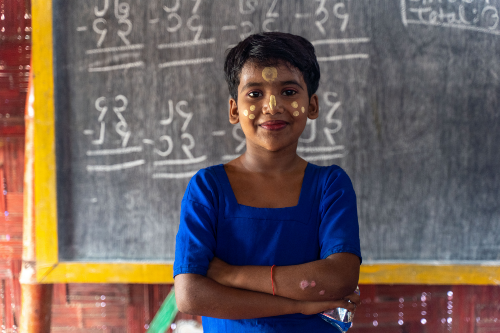
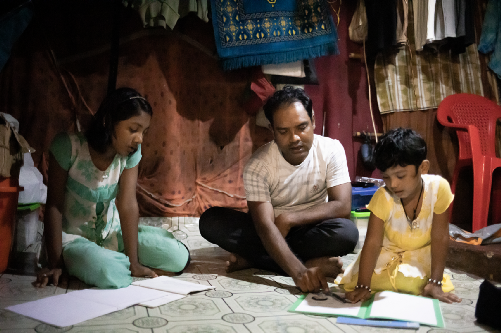
Rohingya girls are often pulled from schooling once they begin menstruating and child marriage is prevalent. Photos: WFP/Mehedi Rahman and Nihab Rahman
In my opinion, lack of education is contributing to the increase in child marriage. Getting married at a young age is not part of our culture, but parents who themselves did not get an education continue the cycle by not allowing their girls to finish school and forcing them to get married instead. I see some girls that do have enough knowledge to understand the situation but their parents are forcing them to get married anyway.
We must speak out more and raise awareness about why it’s important for girls to wait to get married. If every girl gets the opportunity to go to school and realise her full potential then child marriage will be something of the past.
However, we still face challenges. There are women and girls who are too afraid to raise their voices and to work for the community. Others, who are confident and willing aren’t getting the opportunities to study or to take a job.
My name is Lucky. But my ability to study and work shouldn’t be based on ‘luck’, it is my ‘right’. I believe that every girl in every family has the right to be educated, to be happy, and to be given time until she is ready to get married.
Lucky has been living in a refugee camp in Bangladesh since she and her family fled Myanmar in 2017. She is studying Policies, Philosophy and Economics (PPE) at Asian University for Women (AUW). She chose this discipline because in the future she wants to be a political leader and internationally advocate for women and girls’ rights.
Lucky works with WFP as a Communication with Communities volunteer where she has been working to provide potentially life-saving information to her community throughout the COVID-19 crisis.


